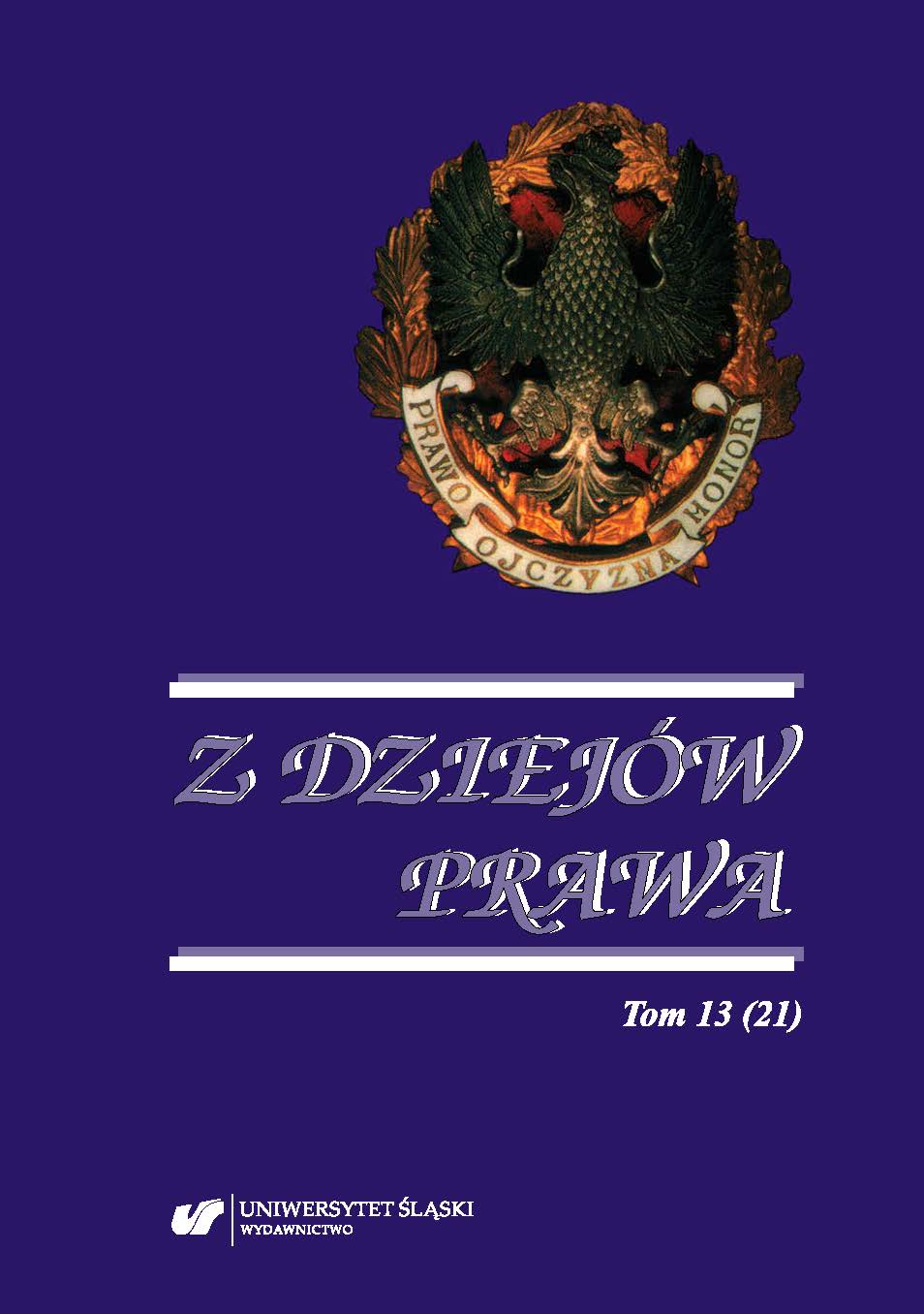O przeszkodach do zawarcia małżeństwa w międzywojennej Polsce na przykładzie prawa węgierskiego obowiązującego na Spiszu i Orawie
Marriage impediments in interwar Poland as prescribed by Hungarian law (applicable) in the Spiš and Orava regions
Author(s): Anna Stawarska-RippelSubject(s): History of Law, Civil Law, Interwar Period (1920 - 1939)
Published by: Wydawnictwo Uniwersytetu Śląskiego
Keywords: marriage impediments; annulment of marriage; Hungarian Marriage Act of 1894; Spiš; Orava; family law
Summary/Abstract: The clash of ideas regarding the nature of marriage took a specific form in the Polish lands during the partitions and after Poland regained independence (1918). The variety of laws in force at that time (German Burgeliches Gesetzbuch of 1896, Hungarian Act no. XXXI on marriage of 1894, Russian ukase on marriage of 1863, the first part of Volume X and partly the first part of Volume XI of the Digest of laws of the Russian Empire of 1832, and Austrian civil code of 1811) posed a challenge to the interwar codifiers and legal practitioners. The premises for the validity of marriage in civil law in the 19th century and in the first half of the 20th century were still of a mixed nature — they partly derived from religious principles (e.g. the impediment of differences of faith or priestly ordination), and partly from secular principles of Roman law (the impediment of age, kinship, affinity, adoption, bigamy and defects in the declaration of will). Against this background, the Hungarian Marriage Law must be assessed as modern.
Journal: Z Dziejów Prawa
- Issue Year: 21/2020
- Issue No: 13
- Page Range: 241-252
- Page Count: 12
- Language: Polish

